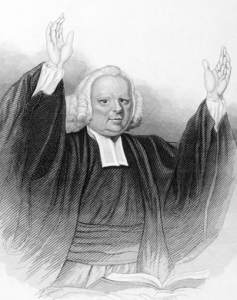Note: We apologize for the previously unedited version of the post.
The Law
Where did the negative mindset surrounding the term “The Law” come from?
I am writing this Blog with the help of research found at the American Institute for Advanced Biblical Studies. Some very important investigations were done around this misuse of the term “the Law.” It seems that some old Gnostic errors of belief have crept into the Church. Gnostic believed that they had a higher exposure of knowledge, especially where the Bible is concerned. However, much of what they believed came about while trying to understand Hebrew documents with a Greek mindset.
For instance, one of the early Church fathers, Marcion came along when the manuscripts were collected for the Bible. Even though Marcion was a Christian, his beliefs about the history of Israel and the God of the Jews had no relationship with Jesus Christ.
“Marcion, who died about A.D. 160, rejected the Old Testament completely and believed the God of the Old Testament was a cruel and totally different God. Marcion’s theology was so foreign to God’s Word that the great pastor Polycarp, who was a student of John, called him the first -born of satan. Although Marcion was excommunicated from the early church, unfortunately some modern Christians have unknowingly endorsed his ideas. (aifabs.org, course CS133L3)”
Later, Augustine, a Roman Catholic monk, championed Marcion’s ideas about grace opposing God’s Law and made it a major part of church theology.
The notion of grace over law was accelerated when the French Reformer John Calvin endorsed this position in his Institutes of Christian Religion, which became the guide for the Reformed churches of Protestantism.
The phrase in Luke 16:16, “The law was only until John,” sounded like an ending of the law system, but what it was actually saying is that all these books were sacred manuscripts – not a put down of the law. Jesus and his disciples kept the law as required of a Jew. Paul and the apostles also observed the law. Luke is stating in this verse that the law and the books of the prophets until John were the only Scriptures available at that time. The New Testament was not canonized until some 150 years later.
As mentioned above, Paul kept the Law of God and encouraged Jews everywhere to do the same (I Corinthians 7:17, 18). He also exhorted the non-Jews to live according to God’s Law that the righteousness of the Law might be fulfilled in them (Romans 8:2-4).
 John Wesley advised a friend, “Preach 90 % Law and 10 % grace.”
John Wesley advised a friend, “Preach 90 % Law and 10 % grace.”
Charles Finney who is labeled as having an 80% success rate in his ministry said: “the Law must prepare the way for the gospel; to overlook this in instructing souls is almost certain to result in false hope, the introduction of a false standard of Christian experience, and to fill the church with false converts.”
John Wycliffe, the Morning Star of the Reformation, said: “the highest service to which a man may attain on earth is to preach the Law of God.”
Anyone who argues that grace and mercy is not found in the Old Testament, but that this is only in the New Testament is in error. For example, let us look at some Old Testament verses where we can see this concept applied:
KJV Daniel 9:18 O my God, incline thine ear, and hear; open thine eyes, and behold our desolations, and the city which is called by thy name: for we do not present our supplications before thee for our righteousnesses, but for thy great mercies. (Dan 9:18 KJV)
6 Abram trusted the LORD, and the LORD recognized Abram’s high moral character. (Gen 15:6 CEB)
Job 10:12 Life and kindness you gave me, and you oversaw and preserved my breath.
Psa 143:11 Make me live again, LORD, for your name’s sake. Bring me out of distress because of your righteousness.
Dan 10:19 He said, “Don t be afraid. You are greatly treasured. All will be well with you. Be strong!” As he spoke to me, I suddenly felt strong. Then I said: “My lord can go on, because you ve made me strong.”
And there are many more Scriptures that point to grace and mercy in the Old Testament. In summary, when some people say that Christians are no longer under the law, they are believing that the law does not apply to them. This is part truth, the Gentile believers were never under the law because it was an identification code for the Jews. According to the Book of Acts, the new believers were not to be placed under the identification code of the Jews that distinguished this group of people from others (The Law).
The danger of this misunderstanding is that some Christians will think since we are now in the dispensation of grace, we are no longer required to practice a holy standard of living. This is far from truth. God has called us to holiness.


Very interesting topic. Certainly, any accurate teaching of Christianity should include a biblically-based code of conduct. Holiness is clearly required of all believers. I’m always confused, however, when I hear discussions of The Law and its ramifications for believers (Jewish and Gentiles) today. The law is complicated to say the least. Sure, the Ten Commandments are straight forward and clear enough (although interpretations of even these are not without some controversy). But a quick reading of Exodus and Leviticus, in an attempt to understand the Law, can leave one confused and disheartened. Marcion may be considered a heretic, and I certainly disagree with his conclusion that the God of the Old and New Testament are different, but one can easily understand his coming to that conclusion by reading the Law. Plenty of the regulations in the Law would be considered immoral by today’s standards. In fact, Orthodox Jews today don’t follow the Law as it was given to Moses. When witnessing to a nonbeliever, how should we instruct them to live “holy”? What should we tell them to do or not to do to maintain their salvation and avoid hell? I appreciate you taking the time to read my comment and respond. Please know, I am a believer in Christ and I live my life to serve Him. I wrote this comment to continue the dialogue you began in your blog and for the edification of all of us.